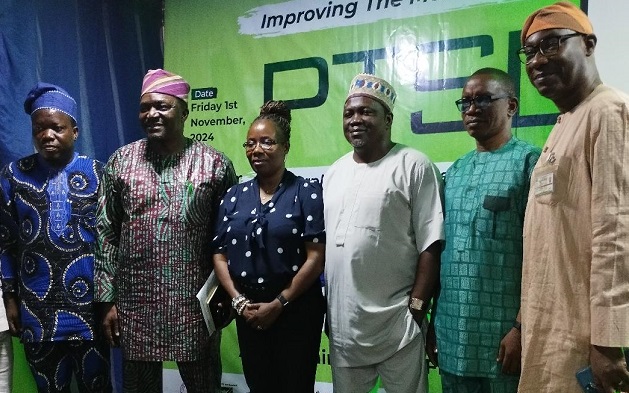Researchers have said that child labour, physical, sexual, and neglect abuse, parental separation and abandonment were all negative childhood experiences that put vulnerable children and orphans at risk for PTSD in a new study done at the juvenile Correctional Institution in the Ijokodo neighbourhood of Ibadan.
They reported that the adolescents in the home also experienced psychological issues like sleeplessness, feeling sad, and nightmares, while some of their carers described working at the home as traumatising to them and often felt helpless about how to help the children in the home.
These findings of the study entitled “Improving the Management of PTSD in Orphans and Vulnerable Children” were disclosed at a dissemination meeting on the multicountry study with partners from the University of Southampton, UK, and Makerere University, Uganda.
Principal investigator of the Worldwide Universities Network (WUN) Project in Nigeria, Dr Yetunde Adeniyi, presenting the findings of the study at the University College Hospital, Ibadan, said more than 90% of the children in the home had undergone some kind of traumatic experience, and it has had significant impacts on them.
She stated that although the children and carers acknowledge that the government is doing a lot for them, the homes still require more attention.
“There’s still a lot that needs to be done in terms of provision of necessary materials, food, clothing, shelter, and also there’s a need for school and clinic at the home. When the children are ill, they take them out to look for hospitals around. The home is big enough to be able to have a clinic and a school.
“Some of the children have physical and mental disabilities; some have disabilities that the carers don’t even understand. They need specialists to visit maybe once or twice a week to see how they’re doing.
“Some of them need medications or some kind of medical care, including surgery at different times. The home might not be able to do surgery, but the medical team would be able to identify these cases on time.”
For the study, one-on-one interviews were conducted with 41 participants at the juvenile correctional institution at Ijokodo. It included 21 adolescents between the ages of 12 and 24 years, 20 carers, policymakers, and people who work with children at the correctional institution.
They claimed that the adolescents mentioned lack of trust and lack of confidentiality as some of the reasons for not always confiding in the workers at the home.
Also, the identified unmet needs of the children in the home were lack of material provision, lack of psychological support, lack of creative activities, inconsistent schooling, and lack of vocational skills training.
In addition, there was a lack of special needs support and lack of training and professional support for staff, poor access to schooling, and lack of material provision like food, clothes, and medical supplies.
According to her, “Some of them are unhappy; they are confused about the future; they really do not know what to do after the state that they are in because there is no obvious provision for them. So they are sad; they sometimes have nightmares, which could be signs of PTSD.
“The carers also complain of having psychological problems. They are overwhelmed by the work. Many of them are not trained to do that work. They don’t mind working, but they are required to be trained. If you are trained to do something, the work will become easier.”
Adeniyi, however, declared that, with their responses about their future mostly centred on becoming independent, pursuing a career, and acquiring money and skills aspirations, there was an urgent need for funding structures for the home to improve the way staff are trained and, hence, the way children in the home are cared for, particularly through public-private collaboration.
The Dean of the Faculty of Clinical Sciences at the College of Medicine in the University of Ibadan, and chairman at the occasion, Professor Taiwo Lawal, said that dissemination meetings are important to share information about the study and to keep stakeholders informed about the progress of the research and how to take those findings into the future.
Oyo State Commissioner for Health, Dr Oluwaserimi Ajetunmobi, declared that the study had shed light on post-traumatic stress among orphans and vulnerable children and the path for the much-needed intervention and support.
Ajetunmobi, who was represented by the director for tertiary health care services at the Ministry, Dr Idris Fasasi, said the Ministry of Health has taken significant strides to ensure that mental health services are integrated and easily accessible, including fully integrating mental health activities into the state’s annual operational plan and 2025 budget.
According to her, “by providing them with access to appropriate mental health care and supporting their healing from trauma, we are not only improving their futures but also contributing to a healthier, more resilient Oyo state.”
Oyo State Commissioner for Education, Science, and Technology, Professor Abdulwaheed Soliu, said in a response to the study that children with special needs have equity and social needs because nothing is wrong with their brains and they are as useful as all other people.
He assured his ministry’s readiness to work with the research to ensure that challenges regarding vulnerable children and orphans are tackled.
The Oyo State Commissioner for Women Affairs and Social Inclusion, Hon. (Mrs) Toyin Balogun, represented by the Director of Child Welfare, Mr Gbemileke Ojerinde pledged the continuous support of the Ministry towards collaborations to improve the home.
Adeniyi appreciated the Ministry of Women Affairs and Social Inclusion, the Special Guest of Honour, Engineer Jubril Dotun Sanusi (CEO, Ilaji Holdings and Jagun Olubadan of Ibadanland) and all the guests at the occasion for their support towards the success of the project.
ALSO READ THESE TOP STORIES FROM NIGERIAN TRIBUNE
